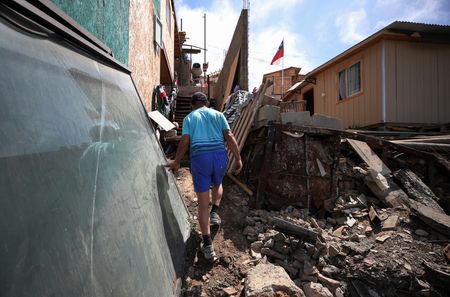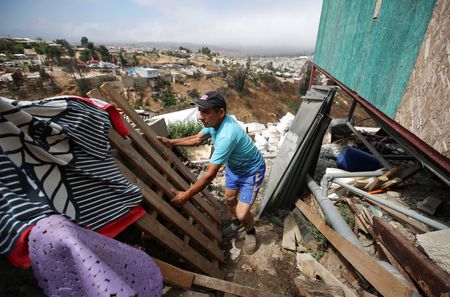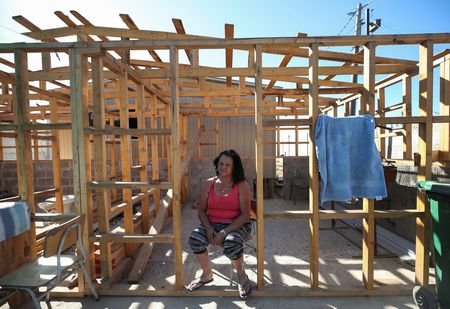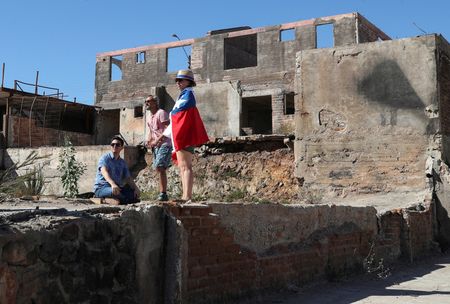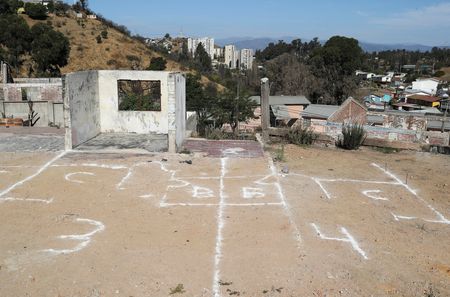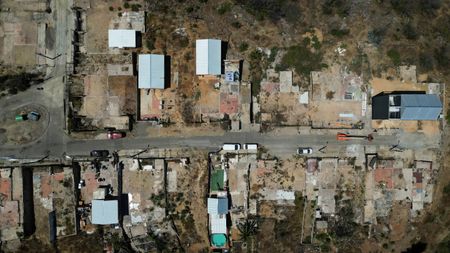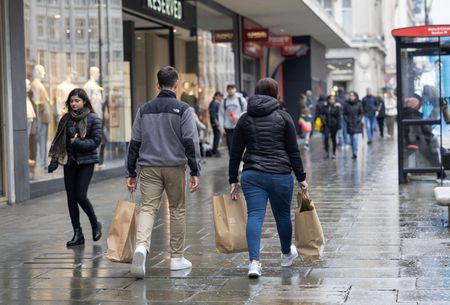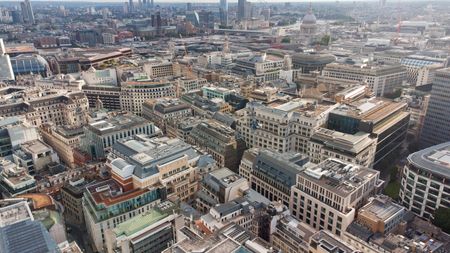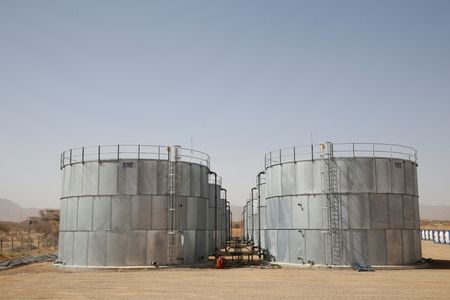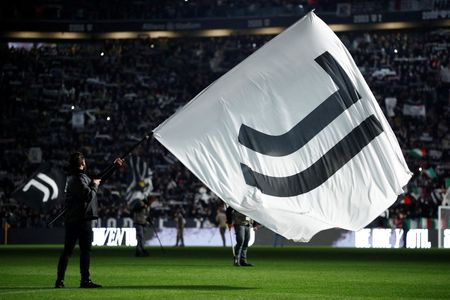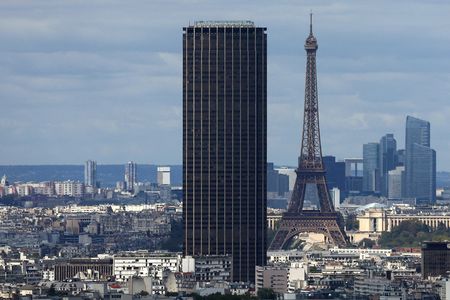By Rodrigo Garrido and Alexander Villegas
VALPARAISO, Chile (Reuters) – Carlos Vidal is still shoveling rubble that used to be his home a year after the deadliest wildfires in Chile’s history tore through his neighborhood and the coastal cities of Valparaiso and Vina del Mar, killing 137 people.
Vidal, 63, says he signed up to receive government housing but got no response, so he has been slowly rebuilding his home, aided by a government bonus, on the ashes of his previous one.
Buildings scarred by the fire still surround Vidal’s home and many residents, including a local mayor, have complained that the government has not done enough to aid the rebuilding effort.
“The fire victims say they have no clarity on what their housing situation is going to be, they don’t know the time frame or how it’s going to be done,” said Carolina Corti, the mayor of Quilpue, a commune in the Valparaiso region.
On Sunday, the anniversary of the fires beginning on Feb. 2, hundreds of residents blocked a road separating the two cities to demand more government action.
“It’s been one year and we have no solution,” said Renato Tapia, one of the protesters on Sunday, adding that he has had all the documents needed to begin reconstruction since March.
“This is an older population, a lot of retirees,” Tapia said. “Our situation is critical.”
In a statement on Friday, Chile’s ministry of housing and urbanism acknowledged that reconstruction had been slow and said it aimed to speed up the process.
“Finishing a house takes longer than a year. We always set a time frame to a year and a half, two years. Life shows us it takes up to three years,” Minister Carlos Montes said, adding that the process would speed up now that they had built a solid foundation.
The ministry noted that out of the 3,043 affected families, 626 had a subsidy and 636 were in the process of receiving one, meaning 41% of families were in “some stage of reconstruction.”
It added that 78 families had a permanent housing solution while 320 houses were being built, 228 were scheduled to begin and plans to house 685 families were being drawn up.
(Reporting by Rodrigo Garrido in Valparaiso and Alexander Villegas in Santiago; Editing by Alison Williams)

